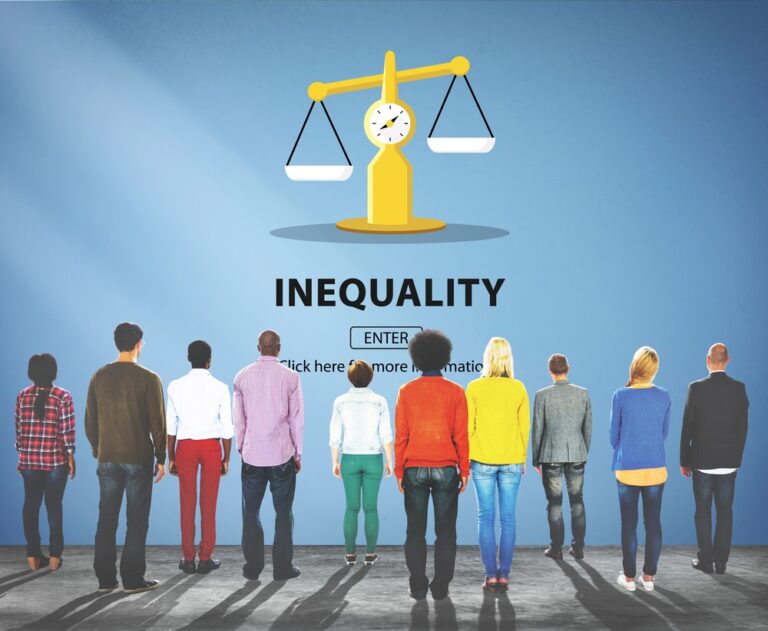In an age of tensions in social justice, wealth redistribution, and the role of the state, it is wise to reflect the roots of inequality and determine whether they are inherently unfair. From a free market perspective, inequality can be seen not only as a natural consequence of economic dynamics, but also as conditions that drive innovation, social mobility and economic growth. But we might ask: is this perspective ethically condemned?
In a free economy, the economy arises not from centralized design, but from voluntary interactions between individuals. Many factors contribute to these differences:
Unique Skills and Talents: Each individual has the ability and knowledge in which demand and value differs depending on the market. For example, a professional neurologist may earn more than a farmer – note that the former is essentially more valuable as a person. Preferences and individual personnel: inequality also reflects individual choices. Subpeople choose to work long hours by starting a business or take Signan’s financial risks, while others prioritize work-life balance. You have a personal proverb. Innovation and Value Creation: Entrepreneurs who develop groundbreaking products like Steve Jobs on iPhone and Elon Musk on Tesla are key wealth scholarships for the benefits innovation brings to millions of people.
This perspective does not mean that all inequality is fair or desirable, but that much of it arises from legitimate and ethical processors with free market systems.
Is inequality unjust?
The ethics of economic inequality can be addressed in terms of legitimacy. Justified inequality arises from meritocracy, innovation and personal efforts. For example, if Subone accumulates wealth by creating jobs or developing products that improve the lives of others, this wealth is not only ethical, but also socially beneficial. Illegal inequality arises when political or economic actors manipulate the system to gain distinct advantages. Monopoly or police of state support to please a particular sector at the expense of other sectors is a clear test of fraudulent inequality.
Robert Nozick argued that inequality arises from voluntary exchange and should not be considered immoral if it honors property rights. Therefore, the focus should be on the conditions in which it is created, not on the inequality itself.
Redistribution of Wealth: Solutions or problems?
The redistributive policy aims to reduce inequality, but Offen eats negative side effects.
Economic Disclaimer: High taxes on income and wealth can discourage hard work, investment and innovation. Inefficient resource allocation: Redistribution policies divert resources into government programs that may be less effective than private initiatives in addressing poverty. Institutional dependence: Long-term subsidies can promote structural dependence rather than allowing individuals to overcome poverty.
Milton Friedman argued that forced redistribution destroys incentives for productive efforts and ultimately hurts both the poor and the rich in the long run.
Inequality and absolute poverty reduction
An important point in favour of free markets is the ability to reduce absolute poverty, even if relative inequality persists or increases. Over the past 30 years, over a billion people have escaped extreme poverty in an economy that has primarily adopted open market politics. Internal inequality is rising in many of these countries, but overall you have improved significantly. In a free market environment:
Competition promotes innovation and job creation. Historically, trade liberalization has allowed millions of people in developing countries to access higher wage jobs in the export sector. Growth of private capital fuels: Investors seek opportunities in emerging markets and promote the transfer of access to technology, infrastructure and quality goods and services.
The key role of equality before the law
In a free market system, no one should treat anyone preferentially from the state through specific subsidies, protectionist regulations, or exclusive contracts. Justice is repeated again when everyone competes under the same rules, and economic outcomes more accurately reflect the satisfaction produced by individual efforts and products or services.
Economic inequality in the free market system does not require evil to eradicate it. Rather, it is an essential feature of society: individual freedom, innovation, and diversity of talent. However, this does not mean ignoring the illegitimate inequality that must be addressed with transparent and robust institutions that protect property rights and fair competition.
As observed by economist Friedrich Hayek, social justice risks at the expense of freedom and prosperity that only the market can offer in pursuit of the outcomes of equalization. Ultimately, the goal is not to impose material equality, but to ensure that all individuals are freed from artificial barriers and state enforcement and have equal views to reach their full potential.
Omar Camilo Hernandez Mercado is a law student and senior coordinator of Freedom at Freedom University in Colombia and a seminarist at the International Base Foundation’s Faculty of Economics.


